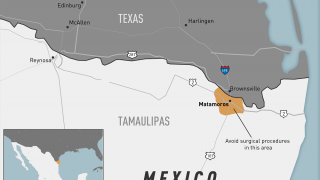350 SDSU Students Require Meningococcus B Re-Vaccinations

San Diego State University (SDSU) officials said on October 18, 2018, that they are working with Walgreens and the County of San Diego Health and Human Services Agency to ensure all students who were affected by defective vaccinations are appropriately re-vaccinated, reported The Daily Aztec.
About 350 SDSU students received meningococcus B vaccinations from Walgreens at vaccine clinics held at Viejas Arena.
Walgreens later discovered those vaccinations were not stored at the correct temperature.
San Diego State students who received meningitis inoculations from Walgreens on campus between October 5 - 8, 2018, were being asked to go back to Walgreens to have their vaccines re-administered, SDSU said on their website.
County officials and Kaiser Permanente also gave vaccinations to SDSU students at those clinics. Those vaccinations were unaffected.
SDSU officials said there have been no additional confirmed cases of meningitis B on campus, but county health officials are continuing to monitor the situation.
Previously, on September 28th, 2018, the country confirmed a 3rd case of meningococcal meningitis at SDSU.
These 3 cases occurring in the SDSU undergraduate population in a 3.5-month period have been determined to be an outbreak by the county health officer.
Meningococcal disease is caused by infection with bacteria called Neisseria meningitidis. These bacteria can infect the tissue that surrounds the brain and spinal cord and cause meningitis, says the Centers for Disease Control and Prevention (CDC).
Academic institutions are taking a range of preventive approaches, from simply making the vaccines available at student health centers or requiring immunizations prior to attending classes.
‘The shared goal of SDSU and the county is to ensure that all undergraduates age 23 and younger receive the full series of a MenB vaccine, Bexsero and Trumenba are the vaccines available," said SDSU.
According to The Daily Aztec, the Walgreens statement said, “While we believe there is no associated safety risk, in order to ensure that recipients received full efficacy of the vaccine, we are in the process of contacting the students to offer re-vaccinations.”
The two vaccine clinics were planned after San Diego County health officials declared a meningitis outbreak at SDSU on September 28, 2018, following 3 confirmed cases of the illness among undergraduate students.
Vaccination is the best defense against meningococcal meningitis, yet according to the Centers for Disease Control and Prevention (CDC), more than 50 percent of U.S. teens have not yet received the recommended 2nd dose of meningococcal meningitis vaccine.
Older meningitis vaccines that were given to adolescents over the past decade don't protect patients from the MenB strains.
Those older vaccines, which include Menactra, and Menveo protect against 4 other serogroups.
Until 2014, there were no meningitis B vaccines approved in the USA.
The U.S. Food and Drug Administration (FDA) approved Trumenba and Bexsero for use in adolescents and young adults. For the best protection, more than 1 dose of a serogroup B meningococcal vaccine is needed.
The 2 MenB vaccines, Trumenba and Bexsero, protect against a category of strains of Neisseria meningitidis known as serogroup B.
And, the same type of vaccine must be used for all doses, says the FDA.
Additionally, on September 17, 2018, the National Meningitis Association (NMA) announced the launch of a new educational initiative in collaboration with Sanofi Pasteur about the importance of the recommended 2nd dose of the meningococcal meningitis vaccine (MenACWY) for adolescents at age 16.
A nationwide, comprehensive list of state vaccination requirements for meningitis B is maintained by The Immunization Action Coalition (IAC) website.
Most pharmacies in the USA offer vaccination services.
Vaccine prices vary and can be researched at this CDC site. To research vaccine discounts, please visit this page.
Vaccines, like any medicine, can have side effects, says the CDC. You are encouraged to report negative side effects of vaccines to the FDA or CDC.
Our Trust Standards: Medical Advisory Committee


























